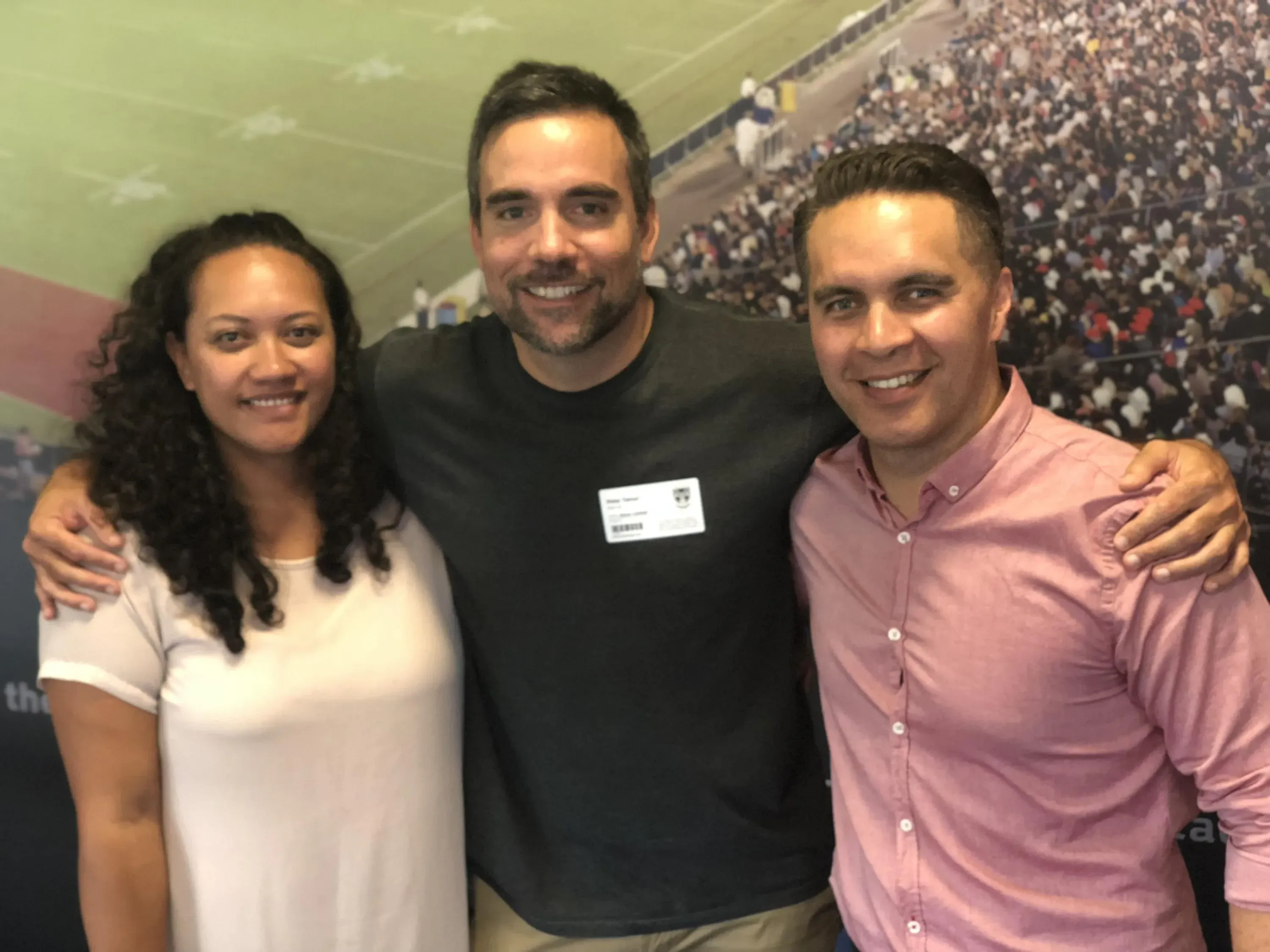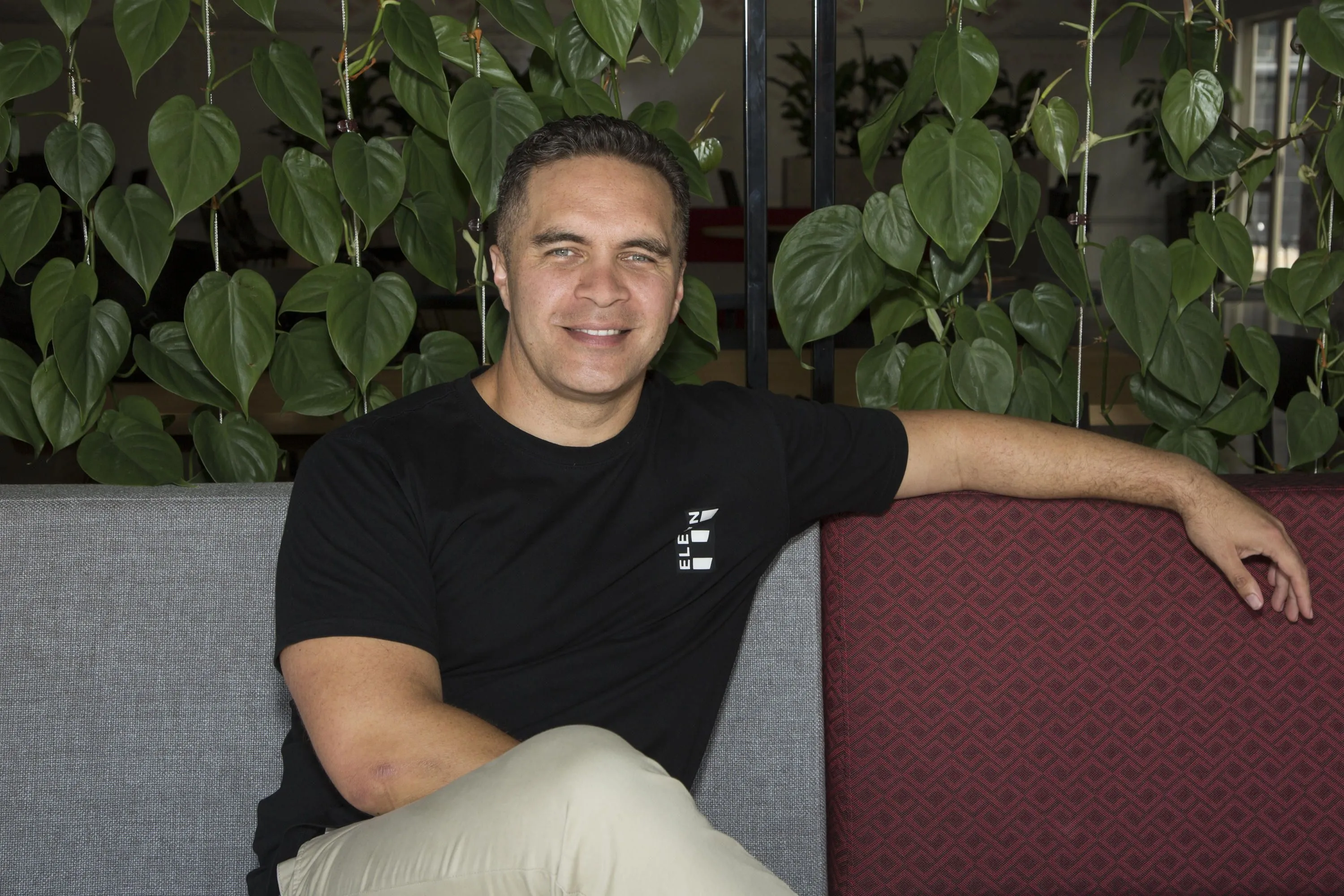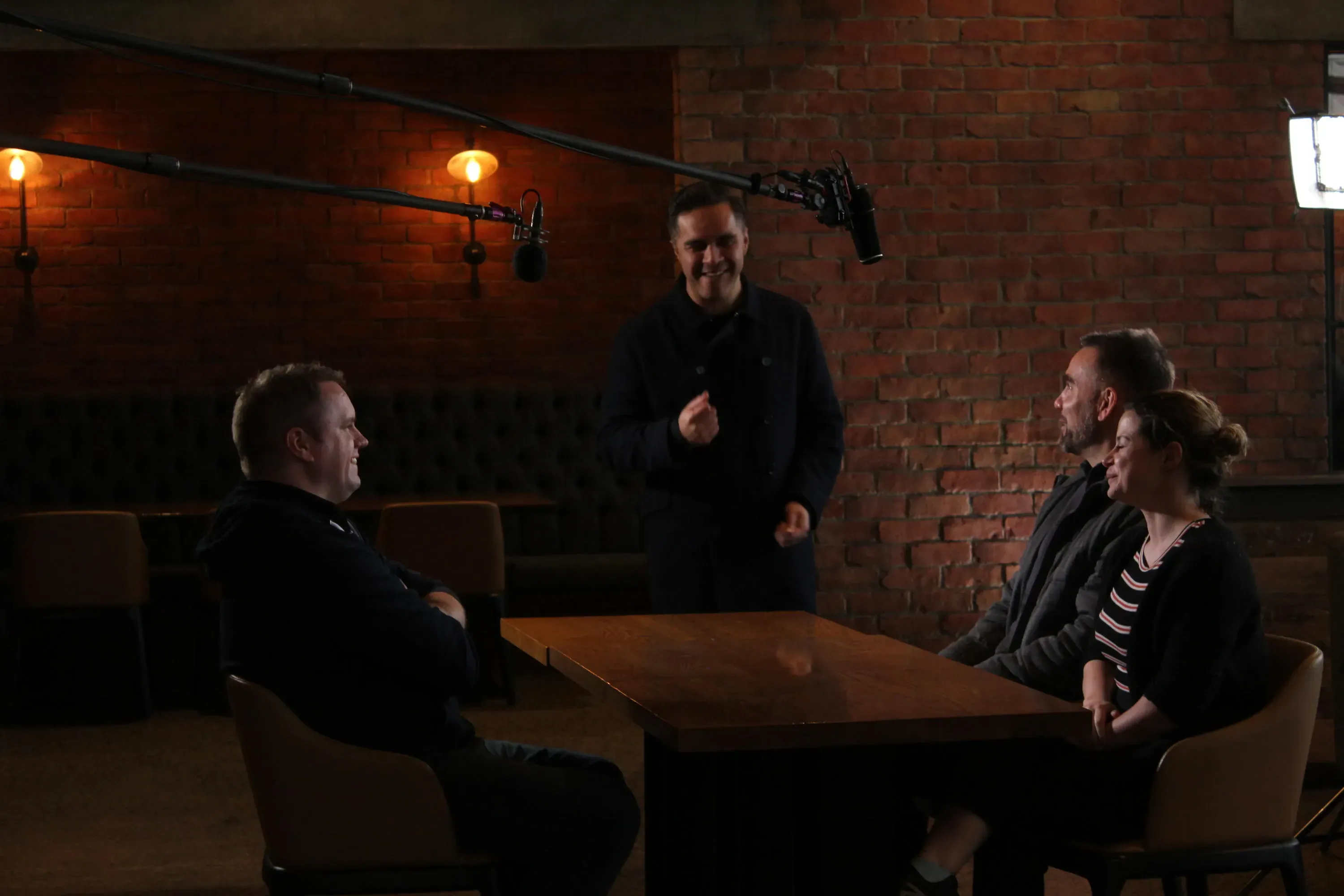The Power of Positivity
Written by

This story was originally published by our friends at Te Taumata Toi-a-Iwi.
Do yourself a favour. Don’t try to give Te Arahi Maipi a label.
One of the directors of the Indigenously inspired creative company Mahi Tahi, he’s spent most of his life indirectly thumbing his nose at those who tell him he can’t do something. Not as an act of defiance or rebellion, rather seizing an opportunity to be better, to be more.
So for a man of many talents who isn’t a fan of being pigeonholed, this interview could only start one way - how do you define yourself?
Maipi - with his broad, warm smile - takes a moment before taking charge of his definition.
“I see my role as puzzle builder. There’s always a whole lot of different pieces and my job is to put them all together to make them connect.”
That innate ability to see the bigger picture, to be able to explain it in anyone’s language has opened doors for Maipi that many would consider locked throughout his life. Finding a way to open doors during a pandemic-driven lockdown is a handy asset to have.
Defying Definition
Lovingly referred to as TA by most who know him, the main reason Maipi (Waikato) sidesteps definitions is because he doesn’t fit the mould those who stereotype would want him to be.
Raised immersed in te reo Māori in Huntly, Maipi’s drive has led him to achieve things that would have been deemed impossible when he was young.
Indeed, Maipi has lived out many a boyhood dream - getting the chance to commentate and host events like the Rugby World Cup, become one of the faces of the historically conservative Halberg Awards (as well as an ambassador for the Halberg Disability Trust) and help to bring te reo Māori into the mainstream media.
Not content with his growing profile as an accomplished performer across television and radio, Maipi, in partnership with his fiercely loyal and talented wife Jade and business partner Peter Tainui, saw a gap in the production market for indigenous creatives.
Mahi Tahi Directors Jade Maipi (left), Peter Tainui (centre) and Te Arahi Maipi (right).
“We try to take the pieces of what makes Māori, Pasifika storytelling so unique, then try to connect it up to mainstream or the conventional. But connecting it in a way that is true and has integrity,” explains Maipi.
“I see that as an extension with my role - our role - within the arts sector in Auckland. There’s a whole bunch of different mediums around content and arts, so we do a bunch of different things.”
Mahi Tahi
Mahi Tahi, translating to work as one, has two different but connected arms. Mahi Tahi Media uses their wealth of production experience to make broadcast, digital and livestream content.
Then, more ambitiously, there’s Mahi Tahi AKL - a shared creative space they operate out of West Auckland.
The initial motivation was entirely practical. “Within the last two and a half years, we’ve outgrown three or four different workspaces now.”
A large props shed at Whoa! Studios seemed the perfect location for their vision and it all fell into place after sparking up a rapport with the mastermind behind the premises, Dave Sutherland. “If you ever see a 50-year-old Pākehā dude in a basketball singlet rolling around in a yellow Lamborghini in Henderson, that’s Dave. Real good cat,” grins Maipi.
With the future in mind, this time Mahi Tahi had more space than they needed with room to grow. But Maipi’s not the type to let anything go to waste.
“If we have their facilities and resources that are going to help us create bigger, better, faster - then why not open that up to other creatives? We have a big creative community out in West Auckland.
Te Arahi on the set of Mahi Tahi’s online series, Indigenous 100.
“We wanted to create a space for other creatives, right across the board to share and collaborate. In particular, it is a space conducive to people that are keen to either understand or immerse themselves in the indigenous creative process or that type of whakaaro (idea). We call it the hub of natural creativity, that’s the ethos of the whole space.”
Every Cloud has a Silver Lining
Owning a shared space when the world goes into lockdown isn’t exactly ideal. If you think that would throw Maipi off his stride, you haven’t been paying attention.
“We are under no illusion that we have to probably park that side of the business in the interim as people try to find their feet, social distancing and the like,” admits Maipi. Keep in mind, this is a man who is incapable of making a negative statement with following it up with a ‘but’.
“But there are still definite opportunities that will be helpful to organisations and especially to creative people,” Maipi opines. “For example, a young production company could find it hard to take up a lease and have that kind of financial commitment with all this uncertainty. In our space, we’ve got everything set up, you can come and work on a project, you're not committed long term to those types of potential financial burdens, so some real flexibility.”
Pandemic Perspective

It’s that mindset - that eye for the puzzle pieces - that has proven his greatest asset in the tumultuous last few weeks.
Speaking on how his world was altered by COVID-19, Maipi’s story starts out similar to many in the Arts community. “The first week was panic - we were in that boat too - everyone was kinda freaking out ‘what are we going to do, what does this all mean?’
“Like heaps of companies, we had a lot of work lined up from April through to June. Some of it might come back, much of it probably won’t. So that forced us into a position to think about what else we can do.”
That’s where TA the problem solver came into his own.
“About 10 days before Level Four lockdown, we had a sit down as a team to discuss - we’ve got these resources, how can we focus?
“One of the biggest toughest things for Māori audiences is a lot of the content around important messaging (during COVID-19) isn’t targeted towards us and doesn’t circulate on platforms we regularly connect with.”
Bigger, Better, Stronger
So a few conversations later, Mahi Tahi began helping right that wrong with livestream and digital content work with the likes of the Ministry of Health and District Health Boards to make sure their story-telling to a Māori audience was catered for and hitting the right kaupapa.
“We will be stronger coming out of lockdown than when we went in,” Maipi states. “It’s accelerated a few things we were going to do anyway. We’ve been able to build more relationships out of the work we’ve been able to create, it’s focussed our investment of our resources into specific areas that I anticipate that will be building blocks of our business over the next little while.”
“The scary part in the first week has started to turn into excitement for us. How do we capitalise on this and how do we continue to grow in the right way and try to be thinking forward in the right manner?”
Whānau First
Maipi calls it being lucky. Luck is winning Lotto with random numbers. In reality, Team Maipi, as his whānau refer to themselves, are bearing the fruit of a wealth of life experience and lessons in resilience.
He’s a father of four as well as a grandfather of two - and he’s only 39.
Team Maipi, Te Arahi and Jade, have made their way in life through collaboration on all fronts.
“My wife and I had our first son when we were 17, we were only kids,” explains Maipi. ”Having to deal with a whole bunch of different things all at the one time is kind of our normal. It’s weird when we have a night off with nothing to do, that’s a foreign concept.”
What is far more familiar though is putting whānau first. “I’ve never made a decision, big or small, business or personal, unless it fits with my family. Everything gets checked over with my wife first and vice versa and then we have to understand the impact on our kids.
“We’ve taken big risks and every step of the way has been unconventional but every decision we make is based on what’s good for our family goals. I always know where my next star is, it helps me whenever it comes to making decisions.”
Crowded Bubble
Many have spoken of feeling crowded in their bubble - not Maipi. In fact, bubble life suits him to a tee. He’s the first to admit though, nine people sharing a three bedroom (with a sleep out for his mother-in-law), one bathroom bubble isn’t for everyone.
“Four generations under one roof,” says Maipi, in between chasing his whānau’s new miniature schnauzer Pepa, who is willfully ignoring his commands/pleas in both English and te reo.
“We’re used to having a lot of people and family as a constant. For me, the biggest thing is knowing and our family is OK, that they have everything they need. We talk about being fortunate in the business sense, it’s times ten at home.”
As you’d have worked out by now, Maipi is positive about the future, not just for his family, but for the arts sector.
“Others have told me they’ve enjoyed the break. Within the industry, it’s a hussle all the time. With funding rounds and stuff like that, it’s hard to relax. You have to keep working all the time because you don’t know what’s happening with the next round. Some of them have gone into creative mode to just think - and they look happy.
“I think that's an awesome position to be in, hopefully that’s conducive for them to achieve new goals when we settle into the new norm.”
As a new world opens up for creative thinking, it helps to know where the puzzle pieces are.


